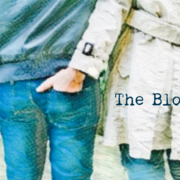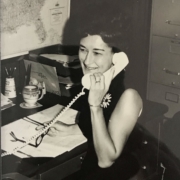I read a Facebook comment recently that plaintively asked “Why is it so hard for us to talk about our emotions?” In light of the recent and tragic suicides of Kate Spade and Anthony Bourdain, I thought about this question. It begged the following question. Have you ever had your emotions minimized or dismissed altogether?
I experienced this recently, and it made me feel sort of expendable, like what I was contributing really wasn’t all that important. It can make you question whether that is true, and undermine your self esteem, as well as your sense of belonging. Now I’m not depressed, but if you are depressed, this only confirms the heaviness you already feel, and the sense that you really don’t matter. Here are eight reasons why emotions have low value in our culture.

Emotions: Dismissed
- Being emotional is a sign of vulnerability, and vulnerability is seen as weakness. This shows up in different ways for men and women, and in different ways for each in the workplace and at home.
- Don’t ask. Don’t tell. You can feel emotion all you want, but there’s nothing to be gained by sharing it with others. Besides, to do that you have to risk, and risk requires vulnerability, which exposes you to the possibility of being hurt. Scary stuff.
- We often don’t have access to emotional language or a full emotional vocabulary, so we stay quiet about it, or make fun if it. We don’t have the words to adequately capture how we are feeling, so we don’t try, or just give up because it doesn’t feel like the other will care or listen.
- Discussing emotion is frivolous, self-indulgent, and a waste of time. It’s not for people like us because we are independent and capable of solving our own problems, or at least we aren’t going to whine about it along the way.
- We’re so numb to feeling there’s nothing to discuss. We withdrew from this long ago. This comes from a long family history where we learned it is safer to to keep it all stuffed.
- Uncertainty is too uncomfortable. This is especially true for those among you who have a heaping dose of anxiety.
- Engaging and asking questions invites trouble, especially at work. Maybe I’ll just look stupid when I ask. Or worse—I’ll learn something I don’t want to know or shouldn’t know, or feel there is no way to fix it.
- For men especially, the feeling of failure, or not being able to “handle it” is seen as weakness. Experiencing that sense of failure is very uncomfortable, at times intolerable. Our culture lays a heavy burden on males to “fix it.” This is the primary reason men find it difficult to come to couples counseling, because it feels like failure that they could not fix the relationship on their own.
One Useful Tip
Would you like to know one useful strategy to use when you experience hurt or anger? One helpful way to prevent yourself from taking what was said too personally? Here goes: Consider the intention of the other person with a curious mindset. Slide into your curious mind and ask “What were they actually hoping to accomplish?” Try it. It works, that is when you are pretty sure they were not trying to hurt you intentionally. And it keeps you from over-personalizing the hurt.
Would You Like More Emotional Power?
What would it be like for you if you had the freedom to express your emotions in ways that could be heard? How would it change your life if you learned strategies for recognizing when your boundaries are being violated and how your emotions are being dismissed? What would it mean for you to know you have a right to feel the way you feel and to share those feelings in appropriate ways with your loved ones?
When you gain emotional insight, it leads to better understanding of your own reactions, and consequently leads to better coping skills and a more satisfying life. You can learn all of these skills. All of these behaviors are learned, and if the ones you currently use don’t suit you, you can unlearn them and replace them with new ways of interacting that create healthier, more fulfilling relationships.
You matter.
And if figuring all of this out seems confusing, call or shoot me an email and let’s get curious about the ways you can change your life for the better. I’m right here in your neighborhood and ready to help.
Page Rutledge, LCSW, MSW, MPH is a Licensed Clinical Social Worker practicing in Wilmington, NC. She specializes in anxiety management and couples communication. Visit her website and blog at www.pagerutledge.com
Resource: My she-ro Brene has researched this topic extensively in: Rising Strong by Brene Brown, 2015










